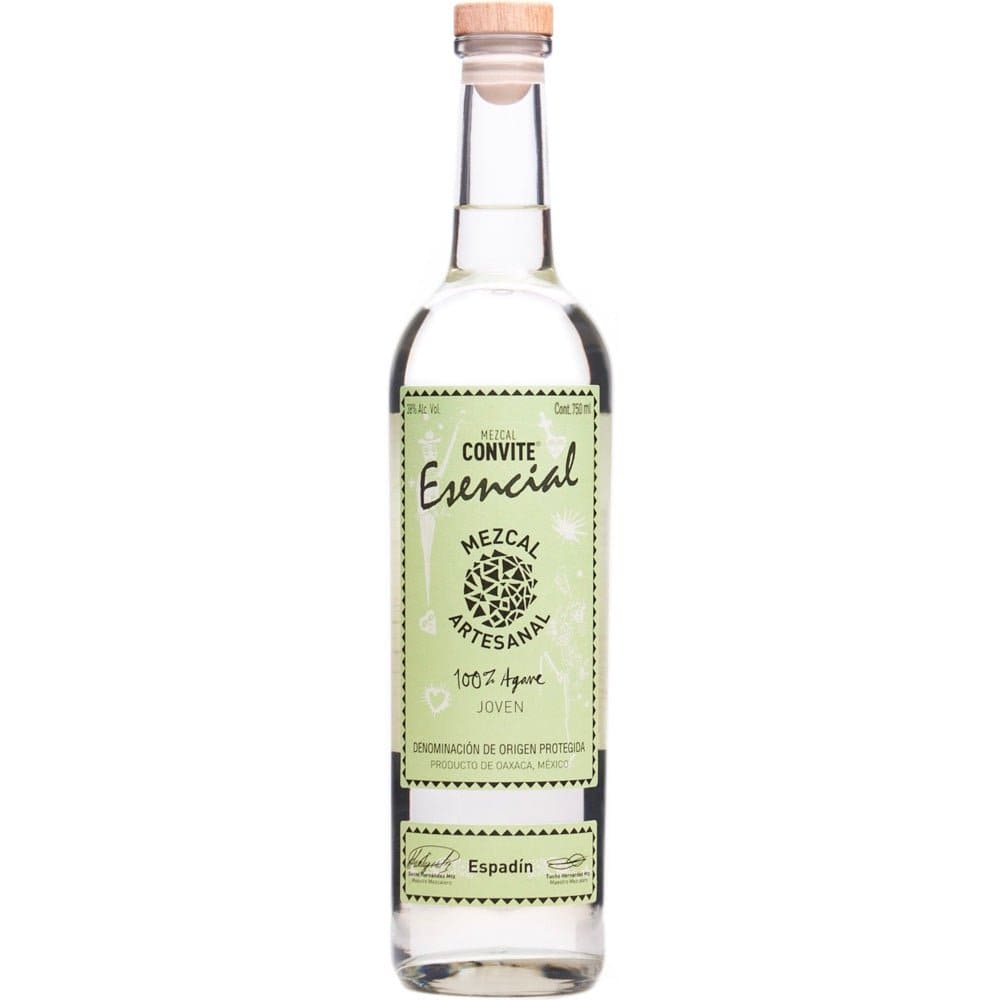
Convite Esencial Mezcal
Convite Esencial Mezcal
Discover the true essence of mezcal with Convite Esencial Mezcal, your perfect introduction to the remarkable Convite range. This exceptional mezcal stands out not just for its taste, but also for its meticulous crafting process that honors tradition while appealing to modern palates.
Key Features:
- Distinctive Flavor Profile: Made with agave Espadin, Convite Esencial offers a unique and rich flavor that encapsulates the spirit of mezcal.
- Light and Approachable: At 38% ABV, this mezcal is crafted to be lighter and more accessible than its counterparts, making it perfect for both newcomers and seasoned aficionados.
- Traditional Production Methods: Experience the authenticity of mezcal-making with techniques that include:
- Cooking the agave in an underground pit oven
- Milling with a traditional horse-drawn tahona
- Natural fermentation using pure spring water
- Double distillation in a copper alembic still
Indulge in the artistry of Convite Esencial Mezcal, where each sip tells a story of craftsmanship, heritage, and a modern twist on a classic spirit. Elevate your mezcal experience with this inviting and flavorful entry point into the world of Convite.

Explore a World of Spirits and Liquor through our Comprehensive FAQ Section.
Discover a World of Spirits and Liquor in our Helpful FAQ Section.
Types of Spirits
- Whiskey: Made from fermented grain mash and aged in wooden casks.
- Vodka: Typically distilled from grains or potatoes and known for its clear, neutral flavor.
- Rum: Produced from sugarcane byproducts like molasses or sugarcane juice.
- Tequila: Made from the blue agave plant, primarily in the area surrounding Tequila, Mexico.
- Gin: Distilled with botanicals, primarily juniper berries, giving it a distinctive flavor.
Production Process
- Fermentation: The process where yeast converts sugars into alcohol.
- Distillation: Separating alcohol from the fermented mixture to increase its concentration.
- Aging: Storing spirits in barrels to develop flavors over time.
Tasting and Pairing
- Tasting Notes: Learn to identify different aromas, flavors, and textures.
- Food Pairings: Discover which spirits complement various dishes, enhancing the dining experience.
Cocktails and Mixology
- Classic Cocktails: Recipes and techniques for making popular drinks like the Old Fashioned, Martini, and Mojito.
- Mixology Tips: How to balance flavors and create your own cocktail recipes.
History and Culture
Origins: The historical background of different spirits.
Cultural Significance: How spirits are enjoyed and celebrated around the world.

